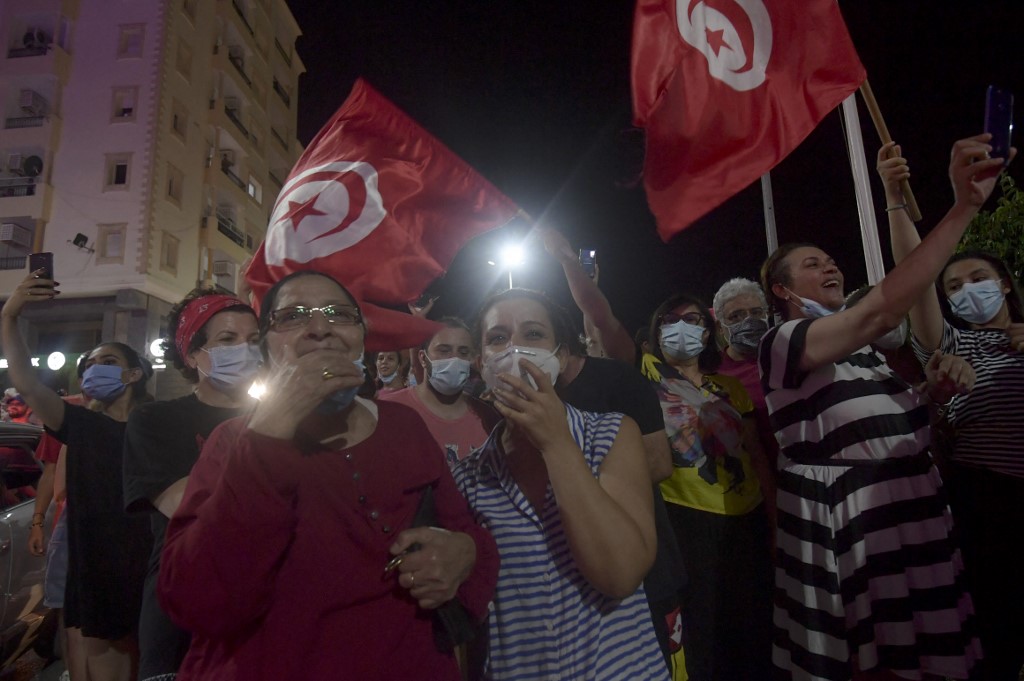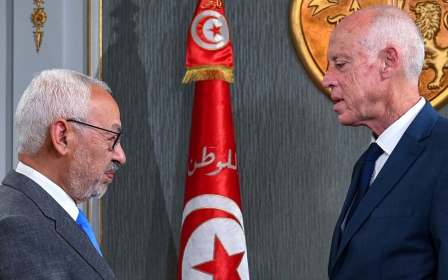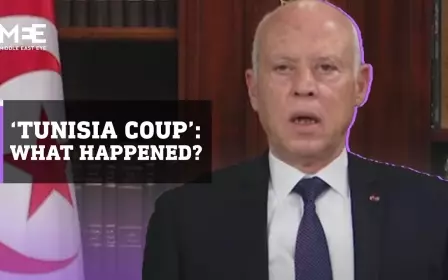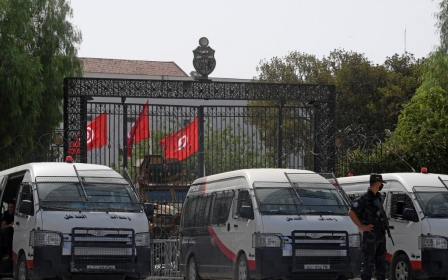Tunisia: What will happen in the days ahead?
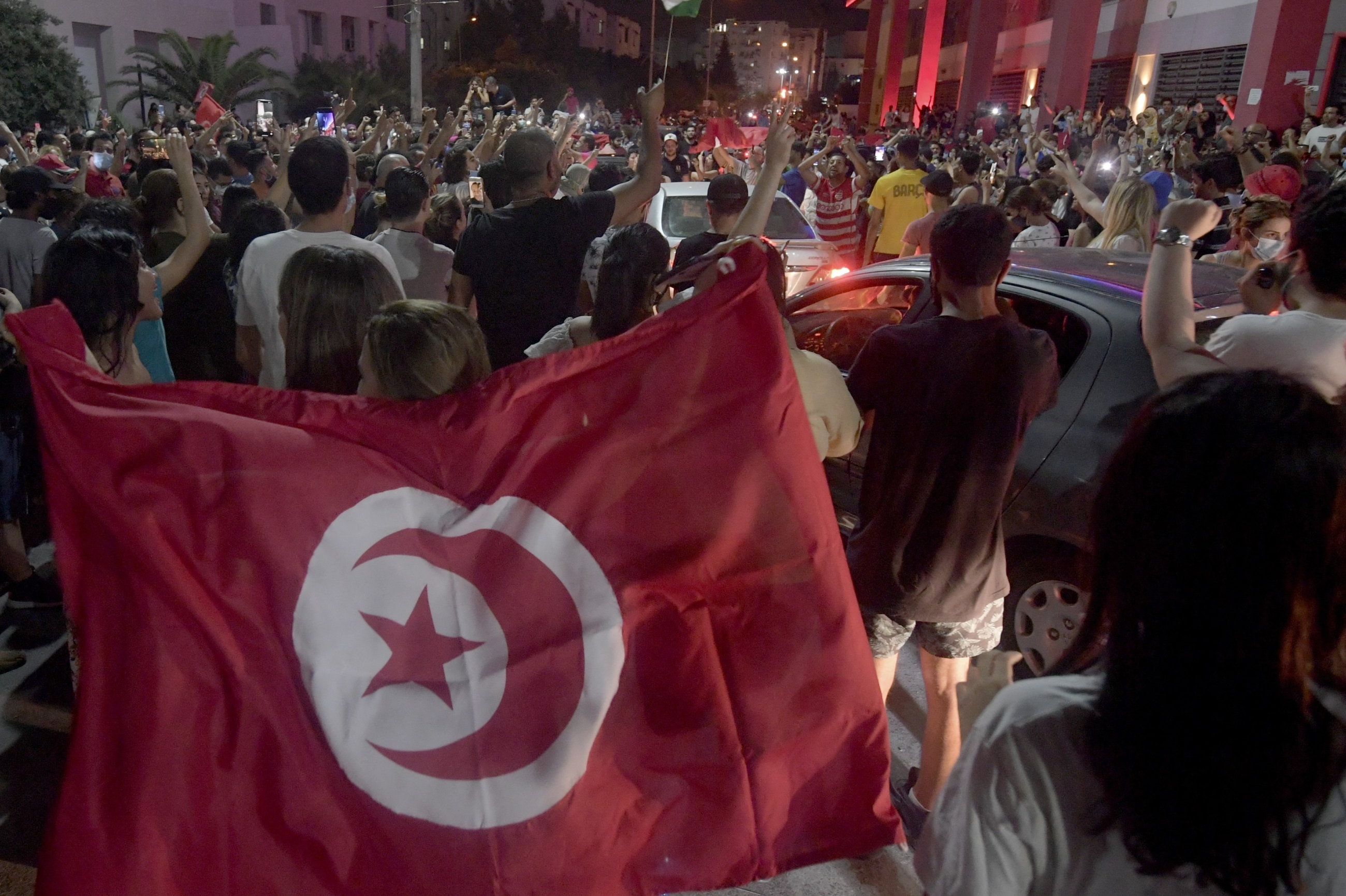
After protests erupted across Tunisia demanding change and accountability for a dysfunctional political system, President Kais Saied on Sunday opted to activate Article 80 of the constitution, thereby freezing parliament, suspending the immunity of all members, and dismissing Prime Minister Hichem Mechichi.
The move was criticised as being unconstitutional, based on an erroneous interpretation of the above-mentioned article.
Reactions were split, both internally and externally. France and the EU called for the restoration of institutional stability, while Qatar expressed hope that “Tunisian parties will adopt the path of dialogue to overcome the crisis”. Turkey said it condemned “initiatives that lack constitutional legitimacy and public support”, urging the birthplace of the Arab Spring to adhere to democratic principles.
A fourth scenario would see angry confrontations between protesters and counter-protesters escalate into violence. This is the last thing Tunisia needs right now
At the national level, most parties expressed opposition, including Ennahda, Qalb Tounes, al-Karama Coalition and the Democratic Current, among others. Others publicly supported Saied, including the Democratic Patriots’ Unified Party and the People’s Movement. It is worth noting that there were dissident voices within the parties opposing the official party line.
National organisations, such as the Tunisian General Labour Union (UGTT), requested “constitutional guarantees” for what it termed “exceptional measures”. Similarly, the National Syndicate of Tunisian Journalists expressed concerns over potential attempts to plunge the country into political conflict. The Supreme Judicial Council also issued a statement emphasising the importance of the judiciary’s independence. Saied has since vowed to respect the constitution and judicial independence.
New MEE newsletter: Jerusalem Dispatch
Sign up to get the latest insights and analysis on Israel-Palestine, alongside Turkey Unpacked and other MEE newsletters
Experts and jurists, meanwhile, have voiced concerns over the “concentration of powers” in the hands of the president.
Possibility of dialogue
Saied’s decisions were politically driven, ostensibly to address what “the people want” - the same slogan he raised during his electoral campaign. But the political upheaval raises a number of questions.
What will guarantee respect for the 30-day deadline, during which parliament is frozen? Who will make decisions on any possible extension to this state of exception? And does Saied have a clear and pragmatic plan of action to secure the country during a short transitional phase, or did he issue his orders in haste?
Thus far, there has been no explanation for the imposition of a nationwide, month-long curfew from 7pm to 6am and ban on public gatherings of more than three people; the dismissals of Mechichi, Defence Minister Brahim Bartagi and acting Justice Minister Hasna Ben Slimane; and the closure of central administrations, local groups and public institutions with an administrative nature for two days.
In this foggy context, a few scenarios are possible. Firstly, the National Dialogue Quartet could initiate a mediation process. While Saied has rejected such mediation in the past, he could be persuaded, just as former President Moncef Marzouki was in 2013. Groups such as the UGTT have massive capacity for mobilisation, which could put additional pressure on Saied. The dialogue process could then focus on the central issues of revising the constitution and the electoral law.
Secondly, blocking entry to parliament could be circumvented by applying Article 51 of the constitution, which allows the assembly to “sit in any other place” under exceptional circumstances, or to use remote voting. Parliament could then vote to end Saied’s term on the grounds that he did not respect the letter of the constitution. Some parliamentarians reportedly held a hybrid session over Zoom on Monday.
Need for oversight
Thirdly, Saied could negotiate with existing factions the suspension of certain sections of the constitution, dissolve parliament, and issue a decree for early legislative elections. But Ennahda doesn’t seem willing to negotiate yet. Another option would be to establish a commission, similar to the Higher Political Reform Commission of 2011, to draft a new electoral law.
A fourth scenario would see angry confrontations between protesters and counter-protesters escalate into violence and civil war. This is the last thing Tunisia needs right now, especially with the Covid-19 situation reaching “catastrophic” levels, according to government officials, and amid an ongoing economic crisis. The balance of power will be crucial, both internally and externally.
A final possible scenario would see Tunisia drifting towards authoritarianism, thus endangering the fundamental freedoms of information, expression and opinion. Vigilance is the order of the day, with an urgent need for critical monitoring of the president’s activities, both by civil society and media outlets.
Currently, there are no signs of such a drift. The leaders of Ennahda, Qalb Tounes and al-Karama Coalition are free and have not been stripped of their security protection. They continue to engage in politics and media.
But we must remain sceptical and watch closely as these events continue to unfold. The context is very tense, and it is vitally important that we have proper oversight of the measures Saied takes. If anything, this crisis has proven that the constitutional court is far from a luxury; it is a necessity to regulate the shifting sands of Tunisia’s political scene.
The views expressed in this article belong to the author and do not necessarily reflect the editorial policy of Middle East Eye.
This article is available in French on Middle East Eye French edition.
Middle East Eye delivers independent and unrivalled coverage and analysis of the Middle East, North Africa and beyond. To learn more about republishing this content and the associated fees, please fill out this form. More about MEE can be found here.



